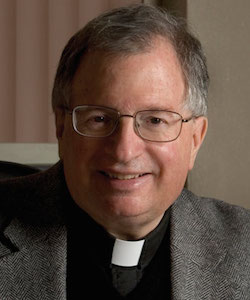
Development Challenges and Global Governance: The Long View
Joel Hellman | September 11, 2015
Responding To: SFS Dean Inaugurates Georgetown's Discussion of Global Governance
Erwin Tiongson
SFS Dean Hellman identifies two of the most significant challenges faced by development interventions worldwide, often underestimated, maybe even ignored: The first is the incredible amount of time it takes to implement institutional reforms and how “progress is likely to be slow, incremental, and always at the risk of reversal.” The second is how, in fact, we know so little, if at all, about how to solve complex problems in fragile and conflict-affected states.
Despite these enormous challenges, Dean Hellman suggests that there are at least two important intellectual and organizational resources available to Georgetown and SFS that help us contribute to the global community’s efforts to find solutions to some of the biggest problems of our time. The first is the university’s vast array of expertise across academic disciplines and practice areas, at the intersection of which the international community is likely best placed to understand the nature of these problems and test possible solutions. The second is the global network of Jesuit institutions and programs, already present in some of the world’s most difficult places.
To these advantages, I would like to add or highlight one more: At GU and SFS, many important conversations about social and economic development, governance, and institutional reforms are already taking place across the boundaries of academic disciplines and in the context of international affairs. Here at the Master of Science in Foreign Service (MSFS) Program we have courses and clinics that encourage students to examine not just the economic challenges facing, for example, a post-conflict region, but to take into account how our “best practice” examples for institutional reforms may fail miserably considering the region’s history, its ancient enmities, and the modern, geopolitical conflicts surrounding the region. We have courses that consider the possibilities, as well as limits, of a new kind of capital investment that can produce financial returns as well as social and environmental benefits across countries. We are organizing “service learning opportunities” that will allow MSFS students to acquire new technical skills, while bringing to bear their experiences in the private, public, and nonprofits to identify and test solutions to a particular development challenge facing, for example, a global nonprofit.
In this environment where we discuss development issues in the context of international affairs, it is often humbling to realize how badly we underestimate complex development challenges. At the same time, such a discussion can serve to emphasize the interdependence of a multipolar world: how today’s fragile state may be tomorrow's global conflict zone; how international migration can bring tremendous economic benefits to migrant workers and their families while also helping meet the growing demands for both skilled and unskilled workers in aging economies; how the experience with development interventions, both good and bad, in lower-income countries—such as new instruments of social protection—can inform and have informed programs and institutional reforms in more advanced economies; and how, as my former colleague at the World Bank once put it, “We are all developing.”
As Georgetown University students, faculty, and practitioners work hand-in-hand with colleagues and counterparts around the world, it is clear that the problems of the “peripheries” that we seek to solve are, in the end, also our problems and that we truly are in this together.
Erwin Tiongson is a professor in the practice of international affairs and concentration chair, international development.

Joel Hellman | September 11, 2015

Desha Girod | September 10, 2015

Drew Christiansen | September 10, 2015

Emmanuel Foro | September 10, 2015

Fr. Kevin O'Brien | September 10, 2015

François Pazisnewende Kaboré | September 10, 2015
James Vreeland | September 10, 2015

Justin Rattey | September 10, 2015

Katherine Marshall | September 10, 2015

Marc Busch | September 10, 2015

Marion Abboud | September 10, 2015

Patrice Ndayisenga | September 10, 2015

Tobias Vestner | September 10, 2015

Shareen Joshi | September 9, 2015